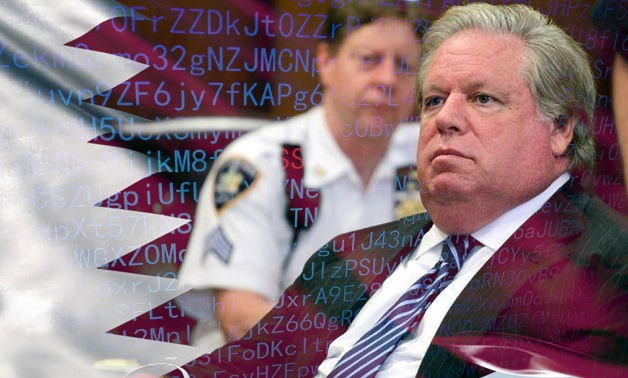
FILE: The lawsuit alleges that lobbyists for Qatar organized and distributed confidential information in Broidy’s emails to journalists at The New York Times, McClatchy, the Wall Street Journal, and the Washington Post
CAIRO – 2 February 2019: Former GOP fundraiser Elliott Broidy filed a complaint in Washington alleging that three Americans working for the terror-funding Emirate of Qatar had conspired to silence one of that country’s most prominent critics by hacking his emails and distributing their contents to the media in an effort to destroy his reputation and his ability to oppose Qatar’s continued sponsorship of Islamist groups.
According to national security consultant and senior vice president at the Security Studies Group, David Reaboi, the lawsuit alleges that lobbyists for Qatar Nick Muzin and Joey Allaham, together with Greg Howard of the prominent public relations shop Mercury Public Affairs, organized and distributed confidential information in Broidy’s emails to journalists at The New York Times, McClatchy, the Wall Street Journal, and the Washington Post.
Reaboi further criticized in his article reporters and editors who allow freelance influence operators and media manipulators to craft meta-narratives, using their bylines and media outlets.
These outlets then pounded the Republican using the stolen documents, eager to take advantage of the former Republican National Committee official’s relationship to the president.
“Broidy’s support for Trump provided a news-hook used not only to generate coverage in the mainstream press, but to villainize Broidy to the media’s partisan readers, damaging his reputation,” Reaboi added.
Broidy was the subject of harmful revelations about his business dealings, government contacts and personal affairs after his email accounts were hacked last year, an attack that has been widely attributed to Qatar.
“Unfortunately, the breach of Broidy’s privacy seems to have been a result of the tremendous sums that Qatar has spent on lobbyists, media and think tanks in service of its ongoing feud with its Gulf neighbors on the issue of Qatar’s support for virulent strands of both Sunni and Shiite Islamism,” Reaboi further stressed.
Since the disastrous ascent of the Sunni Muslim Brotherhood during the Arab Spring, Gulf countries like Saudi Arabia and the United Arab Emirates have taken the threat of Islamist movements to heart. Both countries have banned the Brotherhood’s operations on their soil and have halted funding to Islamist groups, according to Reaboi.
Meanwhile, in Qatar, the Brotherhood—and its many offshoots including, most prominently, Hamas—flourishes with official state support and prestige.
Also, an article published in Tablet Magazine said Nick Muzin, the political strategist and former senior staffer for Republican Senators Tim Scott and Ted Cruz whom Qatar hired to help improve the gulf kingdom’s reputation in the U.S. Jewish community, announced that his work on behalf of his most controversial client had come to an end.
The Qatar contract was worth $300,000 a month for Muzin’s consulting firm.
Muzin’s tweet concluded a tumultuous nine months representing Doha. In September of last year, Muzin largely failed in attempts to facilitate public meetings between U.S. Jewish communal figures and high-ranking Qatari officials during the opening of the United Nations General Assembly. He was more successful in quietly mediating between the Qataris and American activists concerned over Al Jazeera’s potential release of video that a British national named Anthony Kleinfeld collected while infiltrating Jewish and pro-Israel groups in Washington over the summer of 2016.
“Thankfully, they failed in this manipulative effort, but not before Broidy’s emails could allegedly be illegally harvested, cataloged, and then disseminated to the press by Howard at Mercury Public Affairs, who was also then acting a registered lobbyist for Qatar. Howard worked with several media outlets to place negative articles about Broidy using these documents.”
Comments
Leave a Comment